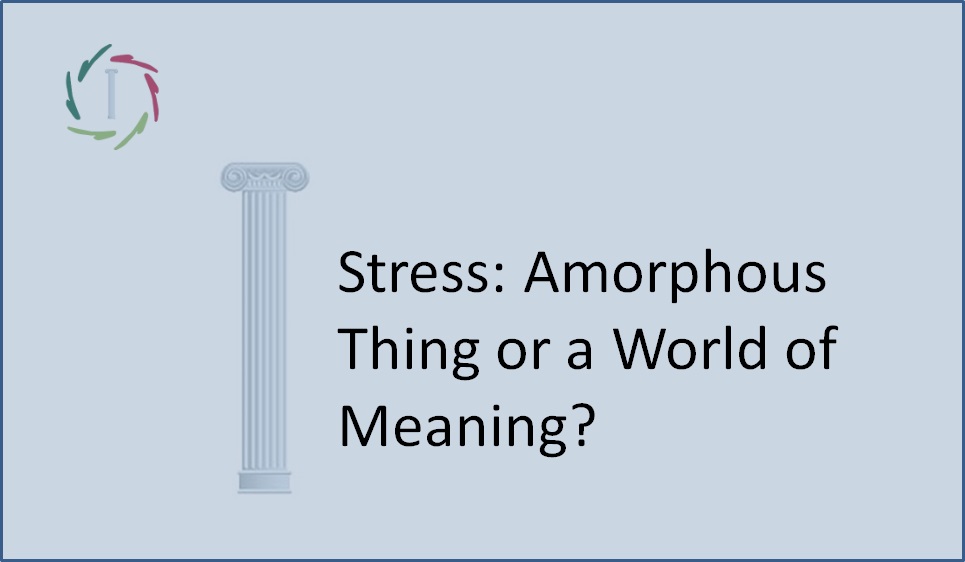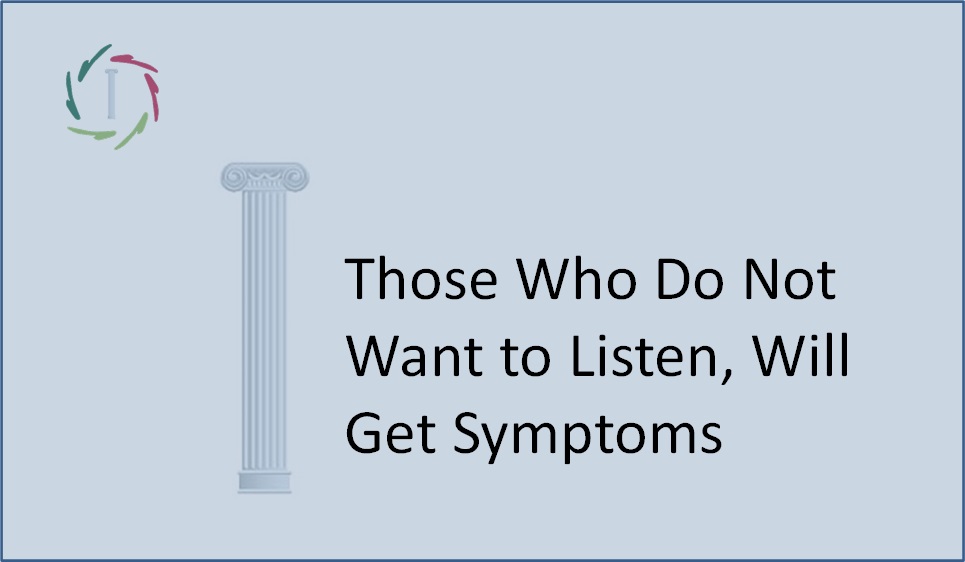18. Stress: Amorphous Thing or a World of Meaning?

Throw all colors in one and the same pot and the result is grey: that’s no basis for a beautiful painting.
In the thirties of the last century, Hans Selye introduced the concept of ‘GAS’ (General Adaptation Syndrome) as the default response of an organism to a stressor. He was the first person who saw in chronic stress a major cause of disease by long-term chemical changes which develop in each individual in pretty much the same way. Hans focused on uniformity. One of the advantages of this choice is that it leads to simple communication with the patient.
One of the disadvantages is that it does not lead the patient to deep insights concerning his situation, perception, implications, meaning, etc.
This can, of course, happen in the next stage. Problem is that this often does not happen. As a result, the patient has to face the consequences. Or even stress as garbage: “Just go home. There is nothing we can do for you. It is the stress that is bothering you. Just try to relax a little bit. “
That’s it?
A world of meaning
What does something ‘mean’ to someone? One can make a list of straightforward meanings. Genre dictionary. But then one still does not know what something can ‘deeply mean’ to someone. Lovers can speak from experience. What does Romeo ‘mean’ to Juliette? Before you know it, you’ll get an answer to such a question in the trend of Shakespeare’s oeuvre. A world of meaning with far-reaching consequences. To Juliette, a dead Romeo ‘means’ the end of her own life…
Not only in novels do things ‘mean’ something.
Of course the entire life is based on meaning at many levels, including depth.
It is strange that it is quite rarely mentioned in Western medicine. It has something of a taboo. It is true that ‘deep meaning’ is difficult to express in experimental scientific research. That doesn’t make it any less important. Also in case of stress. Both in the amateur press as in medical journals, one often writes about stress as if there is nothing else to say. As an amorphous thing that largely can be defined in a score of 1 to 10 or 100. This idea is embedded in stress questionnaires (daily stressors, life events). One sees indeed a number of different causes of stress. What those causes and effects mean, apparently has little importance. One certain stressor (e.g. in the list of life stressors) can mean something very negative for one person and at the same time, it can mean something neutral or even positive to the other. Also the measured stress in the body is amorphous at the level of meaning: without much distinction between, on the one hand, someone who throws himself in headlong and feels comfortable with that, and, on the other hand, someone who is totally under stress and feels very bad. This is just the tip of the iceberg, the outer skin of the onion. What to do with the whole of deeper meanings?
Research will not get us anywhere in that case
If one brings all kinds of factors with very different influences together in one unit and then do some tests on this whole, the results will be strongly affected in advance by this ‘mother of all biases’. In this case, ‘leveling’ is more specifically leveling out the ‘deeper meaning’. It is as if one mixes different paint colors and then examines the impact of ‘color’, on the state of mind for example. In case of research into the ‘impact of stress’ , it is appropriate to stipulate what is meant by ‘stress’ ? Is it about ‘color’ or about all sorts of specific colors considered separately and possibly in all kinds of meaningful combinations?
Measurement brings knowledge, but not if one doesn’t know what one is measuring.
Time and again we forget ‘deep meaning’. But isn’t this just the essence of human existence? Is it not logical that it determines our health to a large extent? My obvious conclusion is as follows: nowadays we know nothing about a possible impact of stress on health and disease. Really profound research in this domain hasn’t even begun. High time to dwell on a world of meaning. In a subsequent column (‘ Stressional Intelligence “) we are off to a good start.


